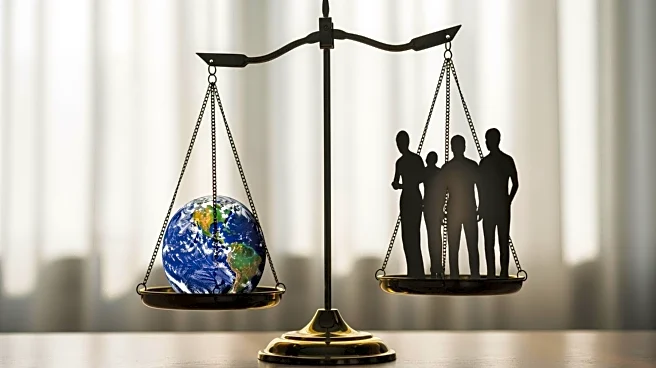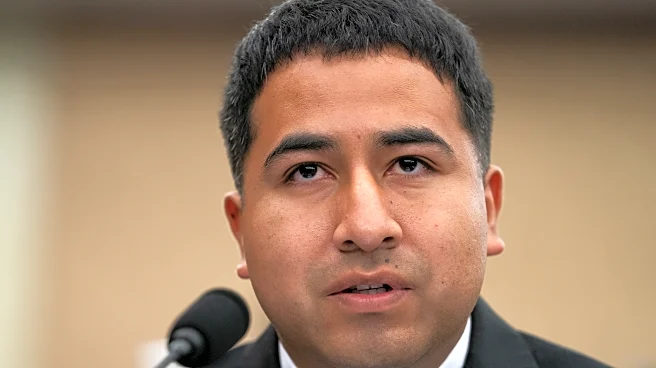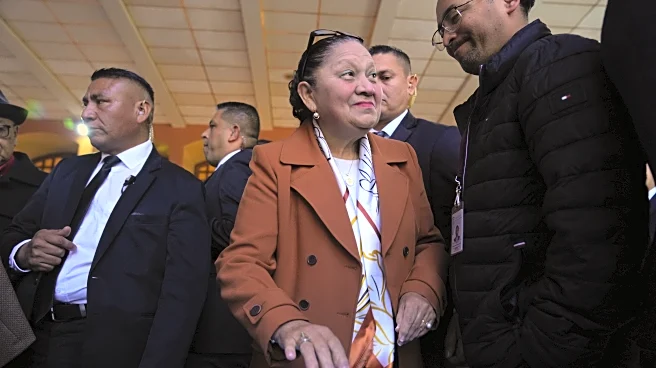What's Happening?
Bill Gates has proposed a strategic shift in the global climate fight, emphasizing the need to focus on reducing human suffering rather than solely curbing emissions. In a memo released, Gates argues that the current emphasis on limiting temperature rise
diverts resources from more effective measures to improve life in a warming world. He suggests prioritizing efforts to alleviate poverty and prevent disease, particularly in the world's poorest countries. Gates, who founded Breakthrough Energy to accelerate clean energy innovation, believes that scientific advancements, including artificial intelligence, are crucial in addressing climate change. He hopes his memo will influence discussions at the upcoming United Nations climate change conference.
Why It's Important?
Gates' proposal highlights a significant shift in climate strategy, potentially impacting global policy and funding priorities. By focusing on human suffering, Gates aims to redirect resources towards health and development initiatives, which could lead to improved living conditions in vulnerable regions. This approach challenges the traditional focus on emissions reduction, suggesting that innovation and economic growth can mitigate climate impacts. Gates' influence in the climate conversation may prompt policymakers to reconsider their strategies, balancing immediate human needs with long-term environmental goals. The debate over this shift underscores the complexity of addressing climate change while ensuring equitable development.
What's Next?
The upcoming United Nations climate change conference in Brazil will serve as a platform for Gates to advocate for his proposed shift in focus. World leaders may need to evaluate whether current climate funding is effectively allocated, potentially leading to policy adjustments. Gates' memo is expected to spark controversy, as it challenges established climate priorities. Stakeholders, including governments and NGOs, may need to reassess their strategies to align with Gates' vision of prioritizing human well-being. The discourse may also influence future funding decisions, particularly in terms of aid distribution and investment in clean energy technologies.
Beyond the Headlines
Gates' proposal raises ethical questions about the balance between environmental preservation and human development. Critics argue that neglecting emissions reduction could exacerbate climate impacts, affecting both natural ecosystems and human societies. The memo also highlights the role of innovation in addressing climate challenges, suggesting that technological advancements can offer solutions beyond traditional approaches. This perspective may encourage a broader discussion on the integration of technology and policy in climate strategies, potentially leading to new collaborations between governments, businesses, and research institutions.













![Cortisol vs. Melatonin: The Biological War Happening Inside Every Night-Shift Worker]](https://glance-mob.glance-cdn.com/public/cardpress/binge-magazine-card-generation/spaces/US/en/discover-daily/images/ppid_7byehtbd-image-177082393426031154.webp)



